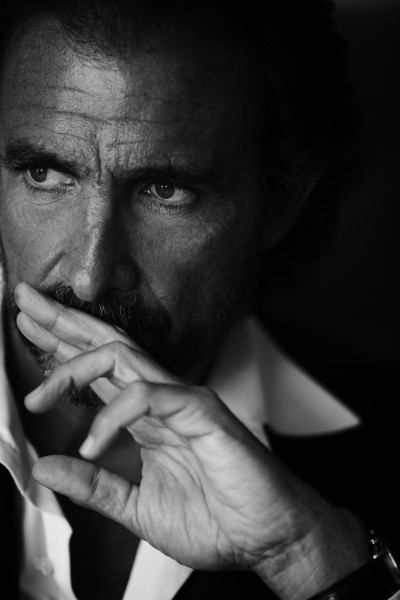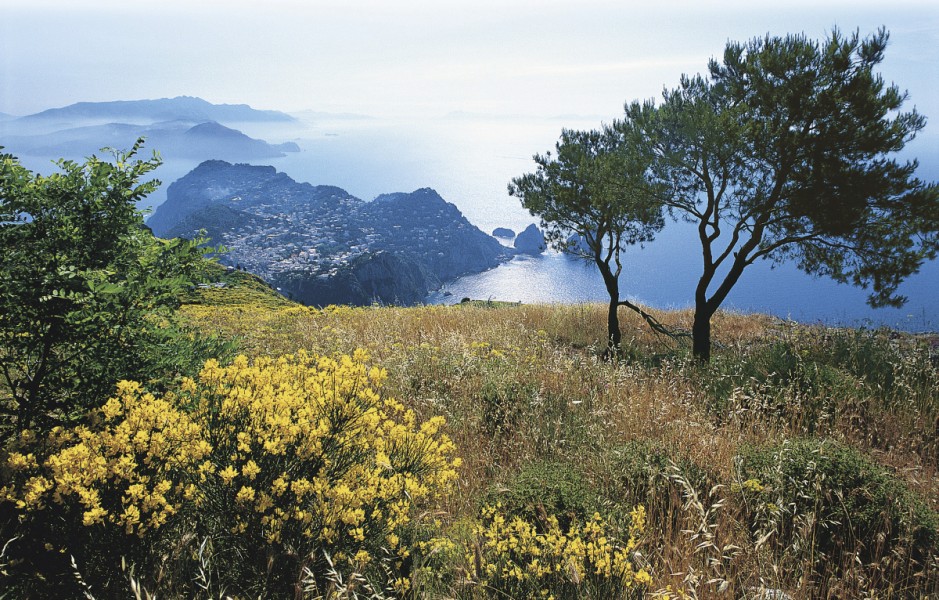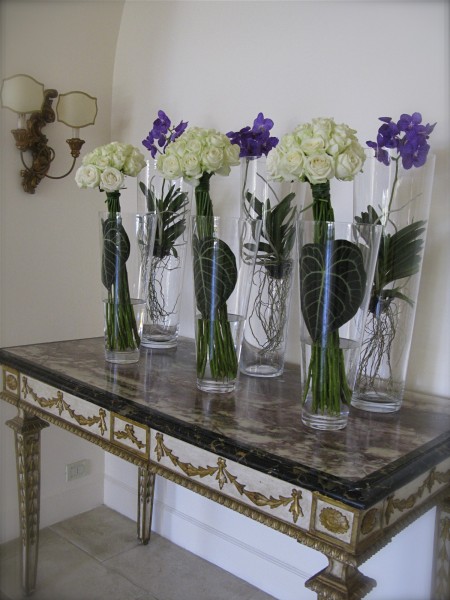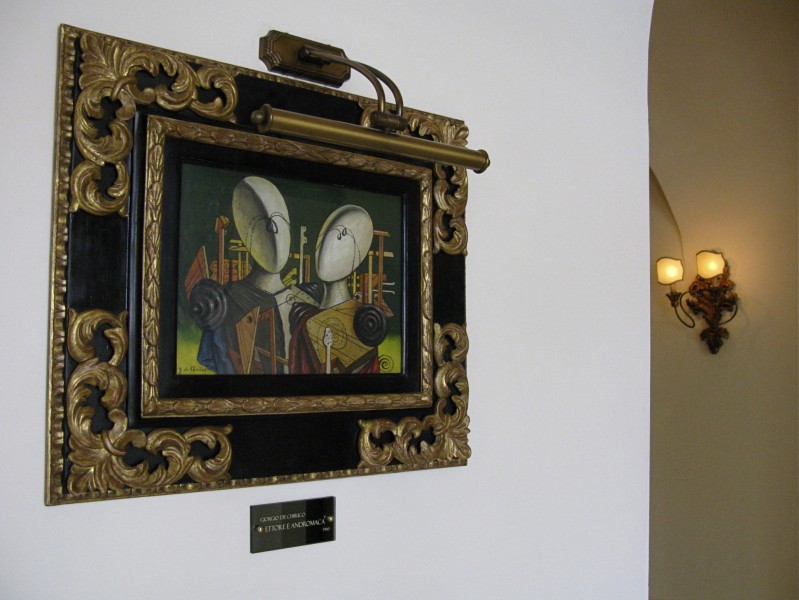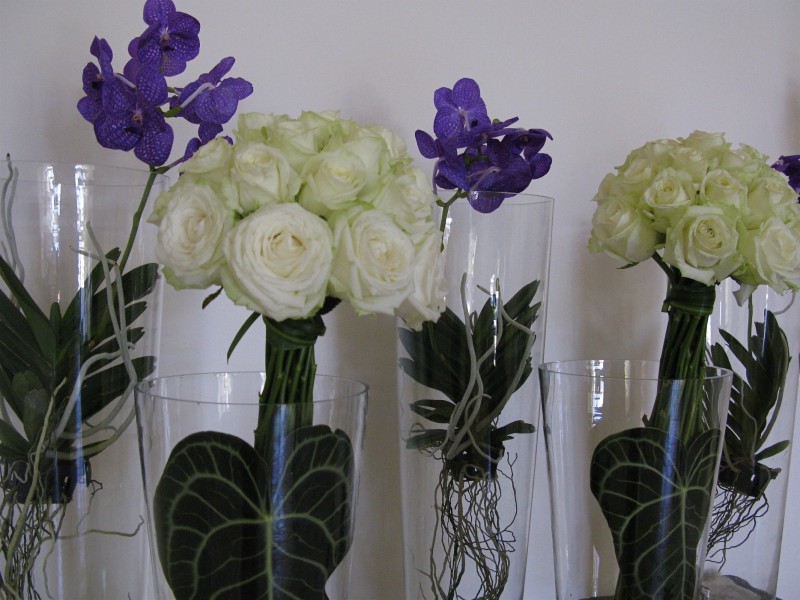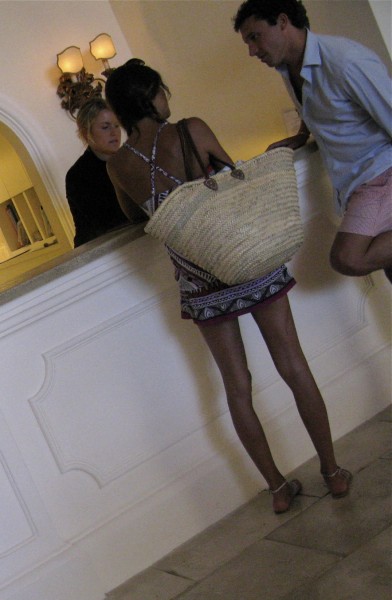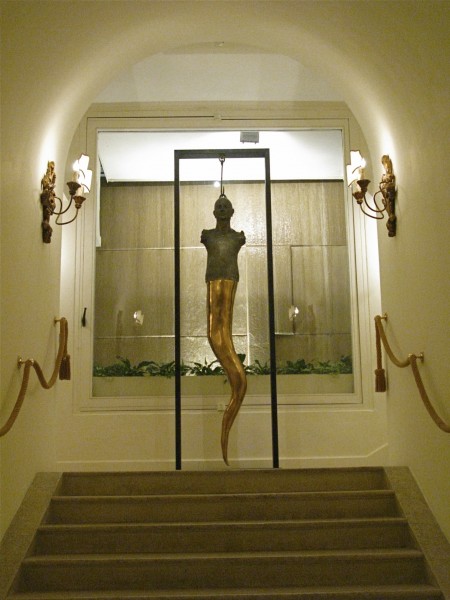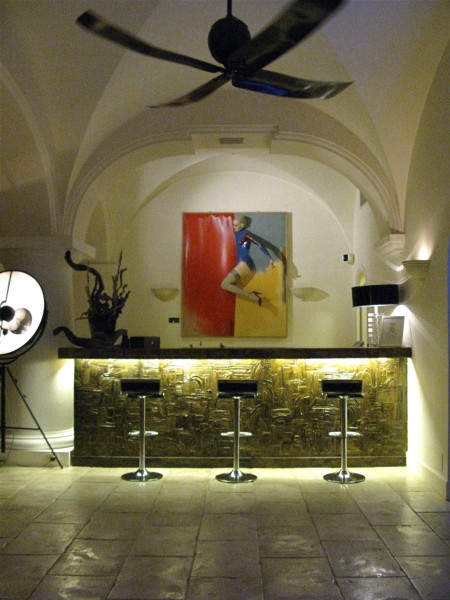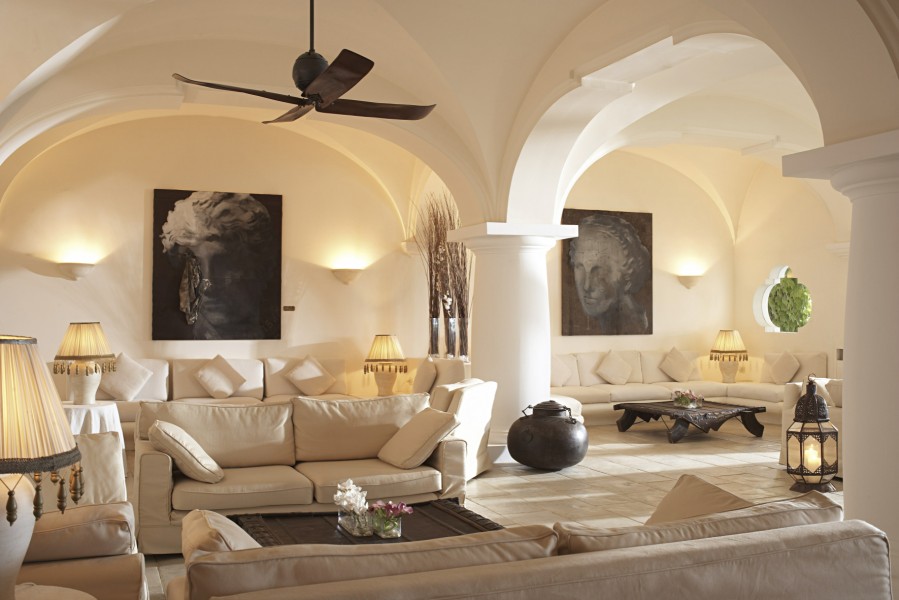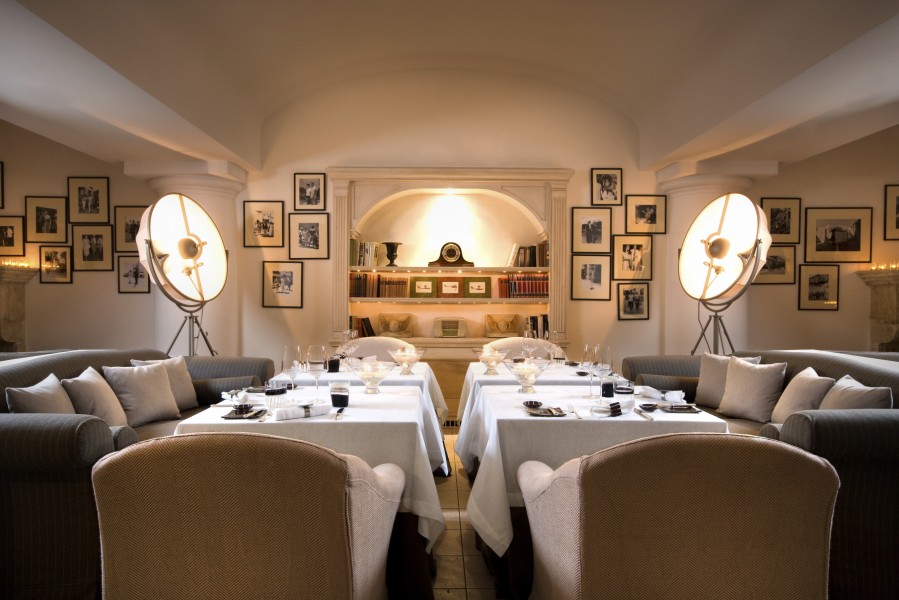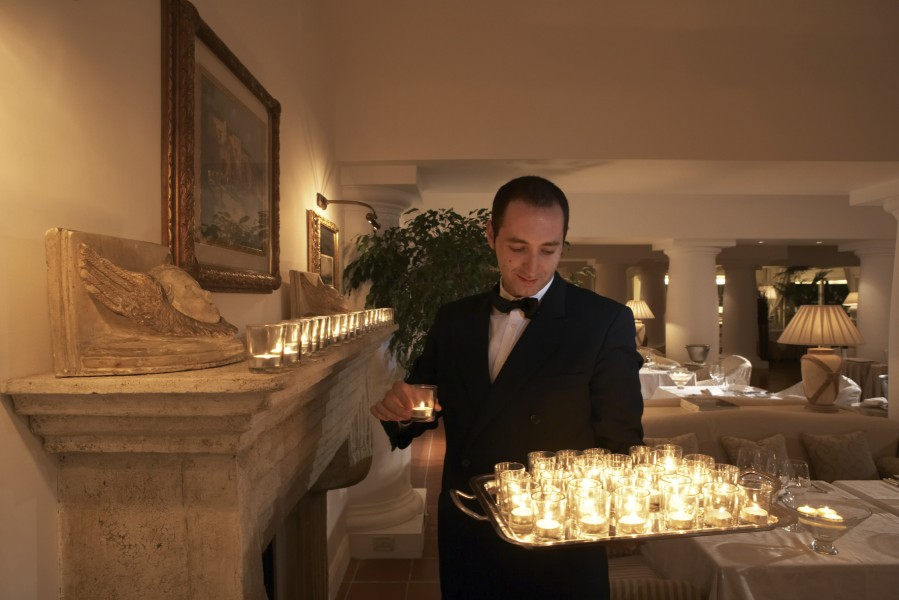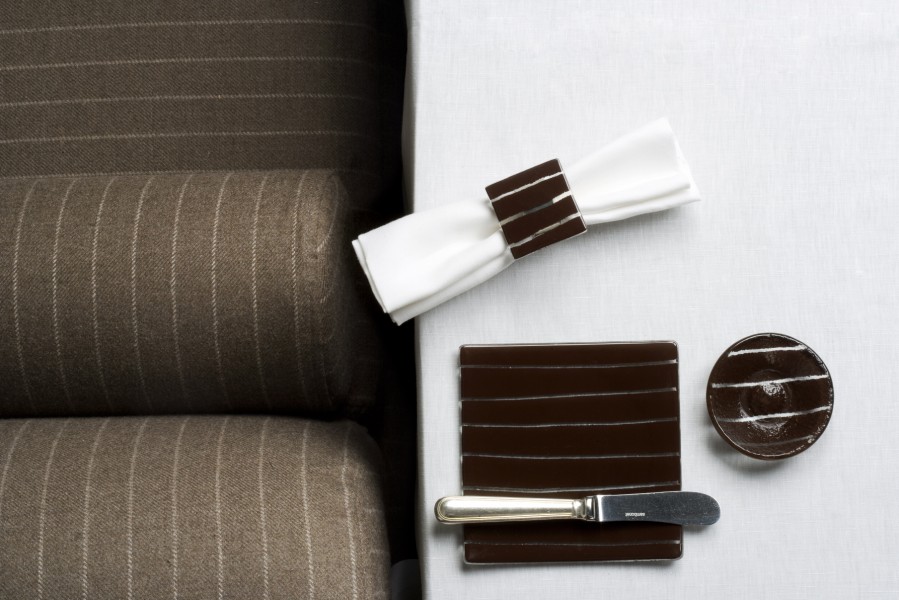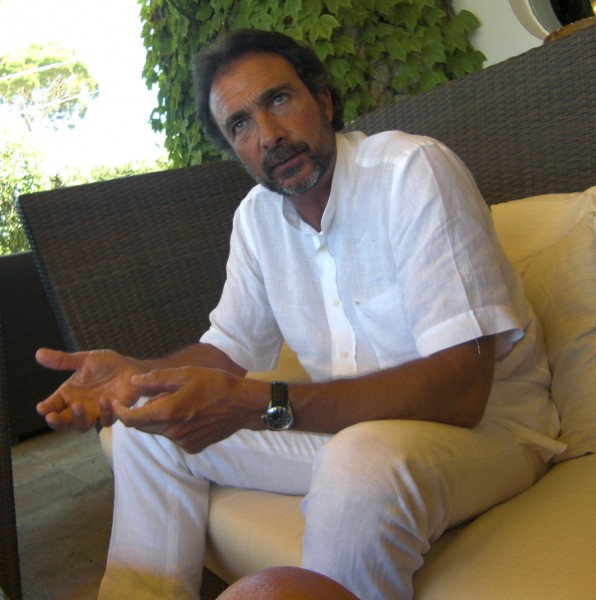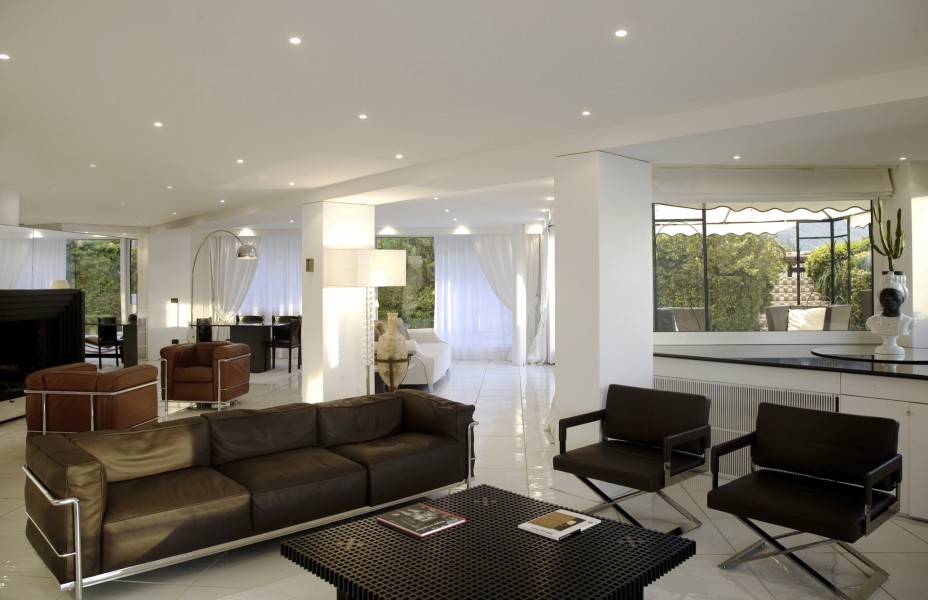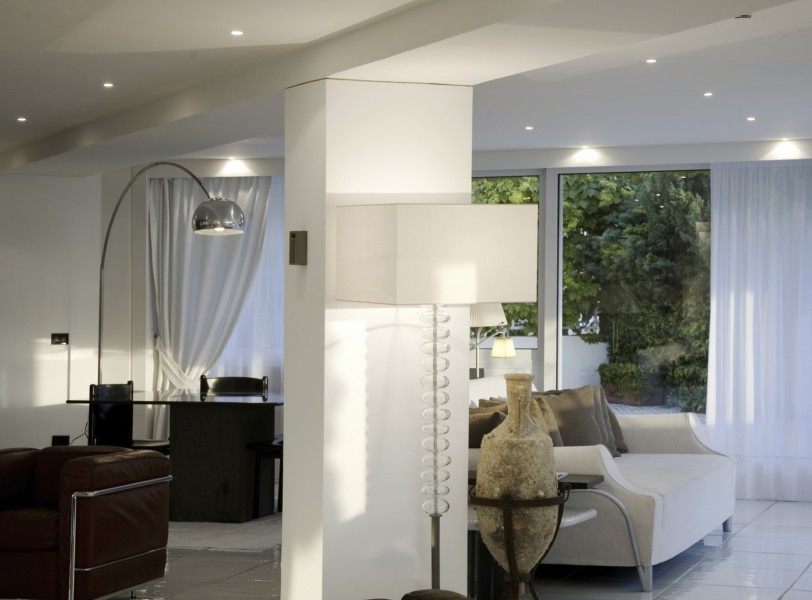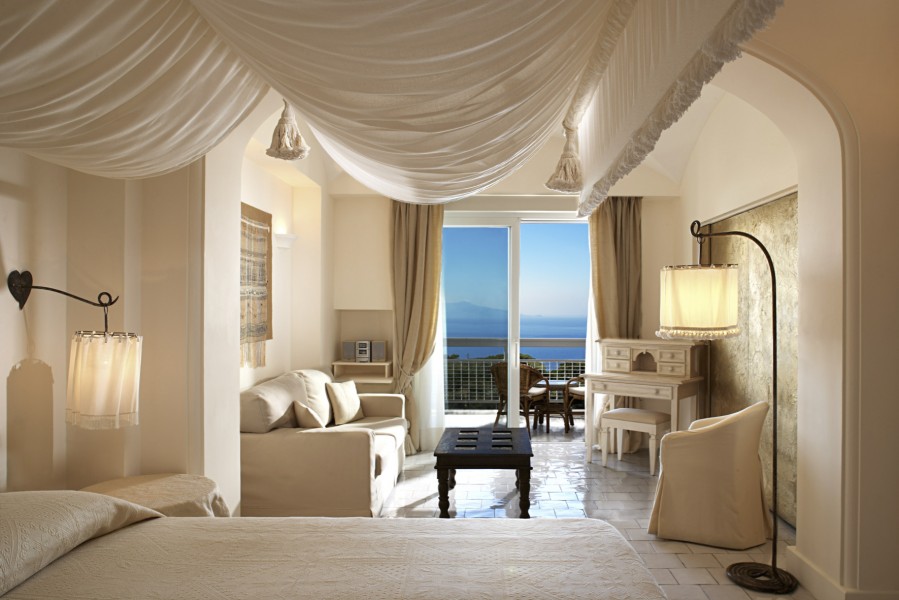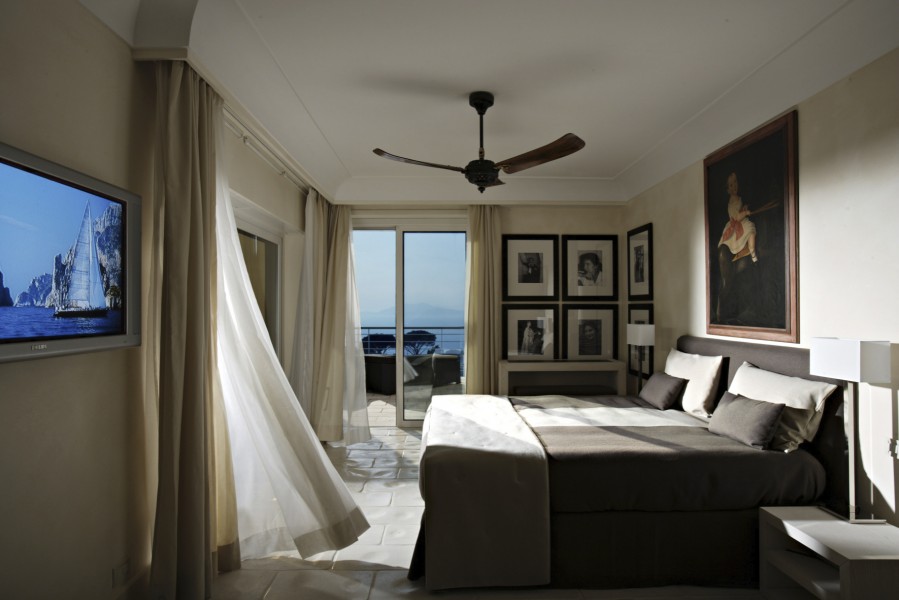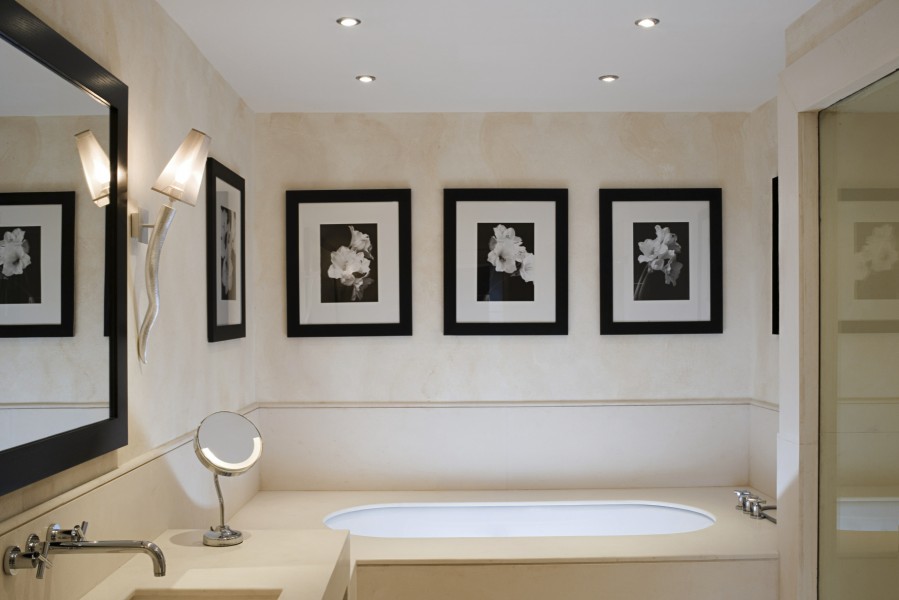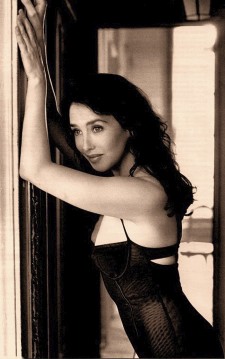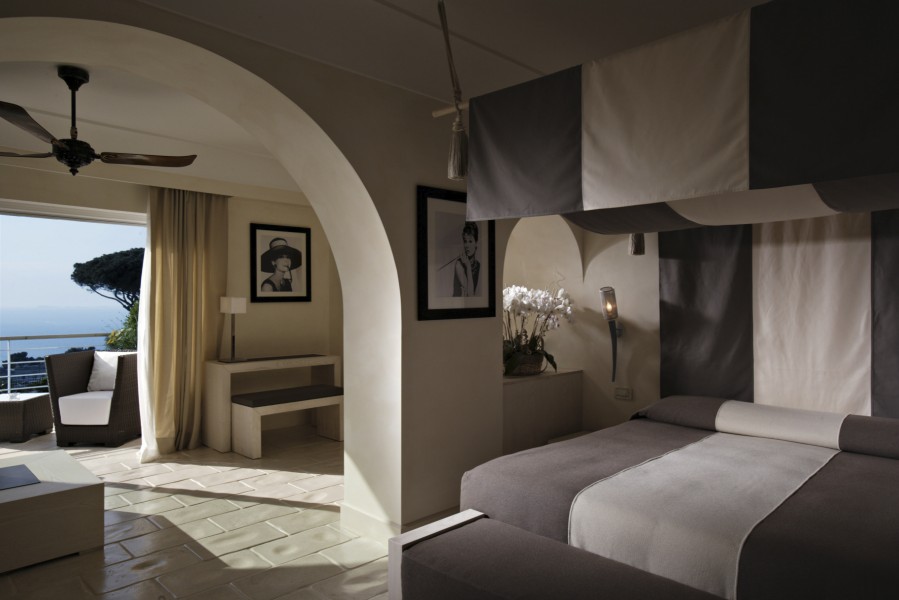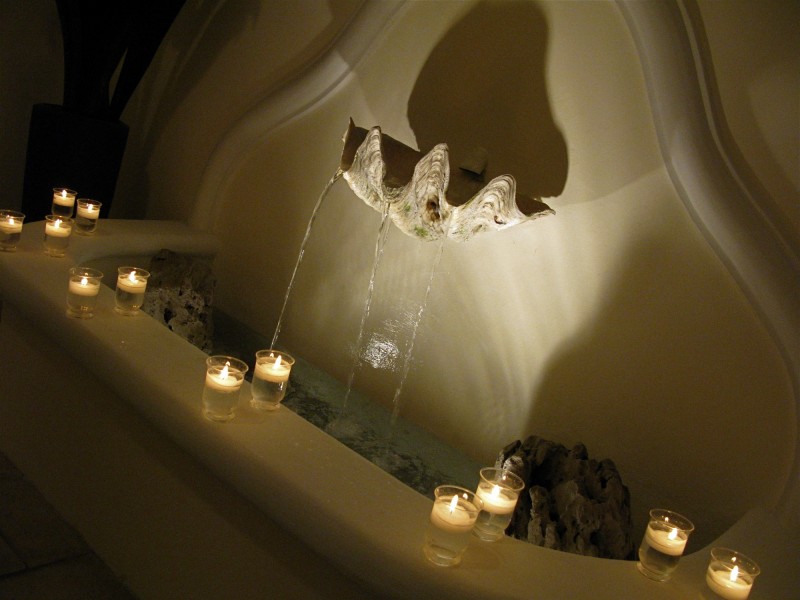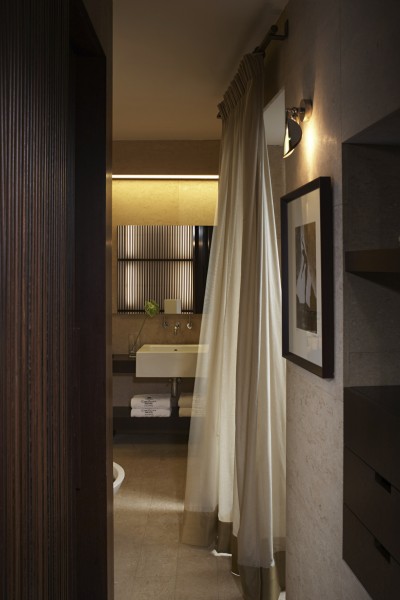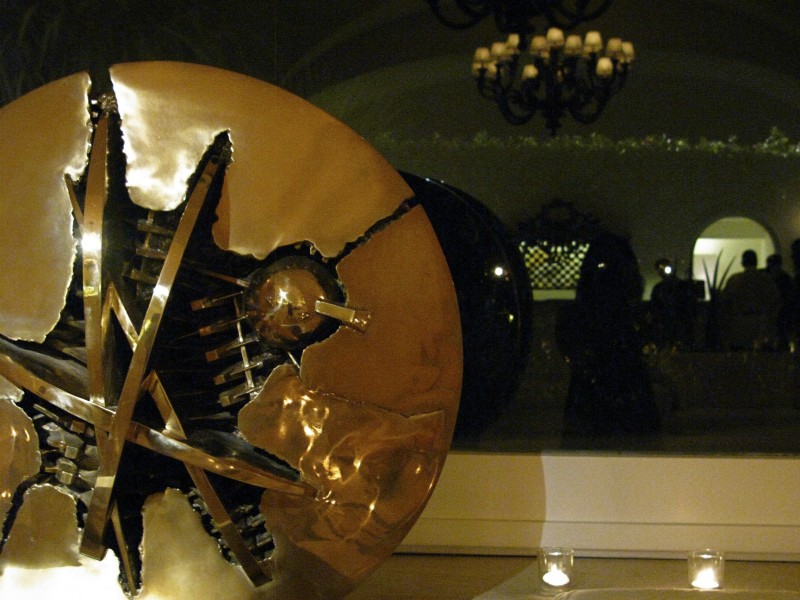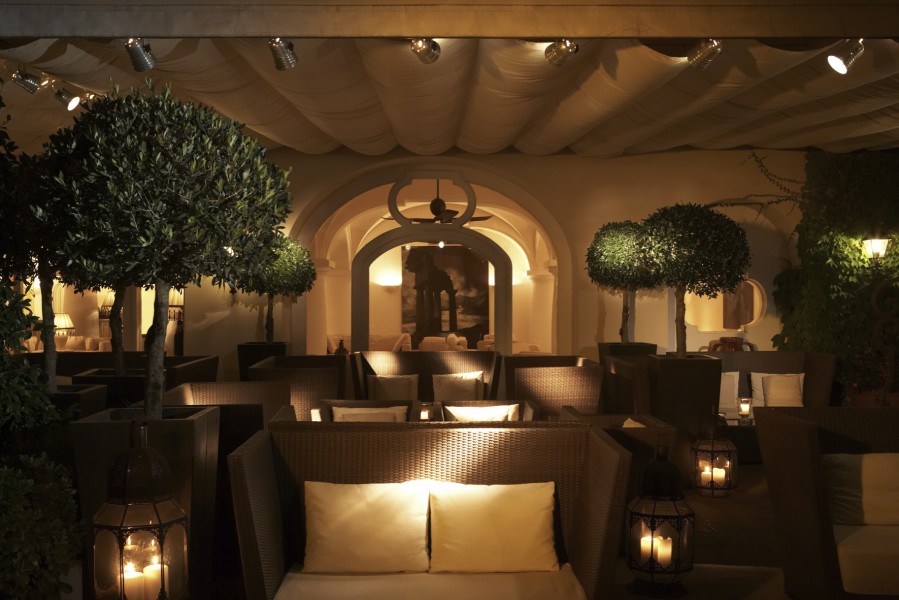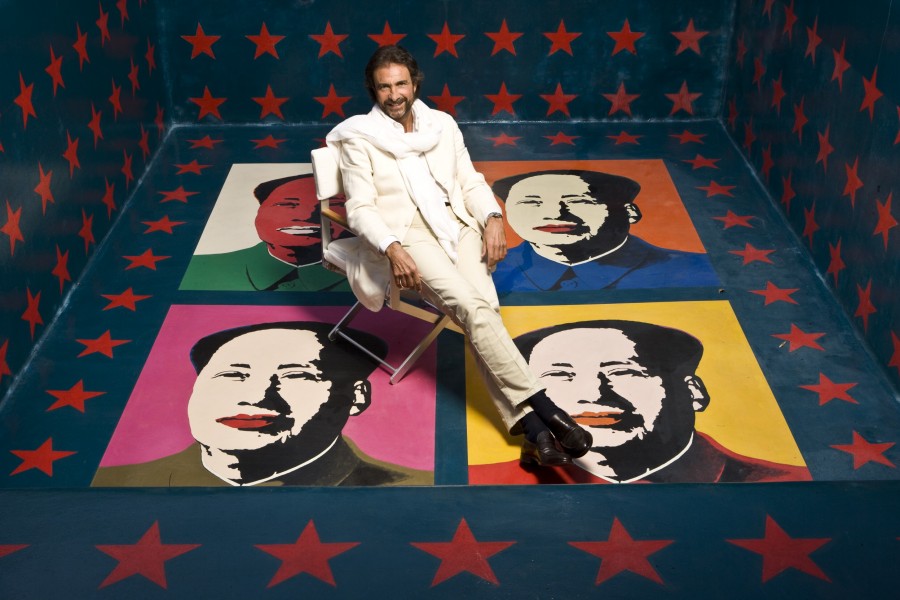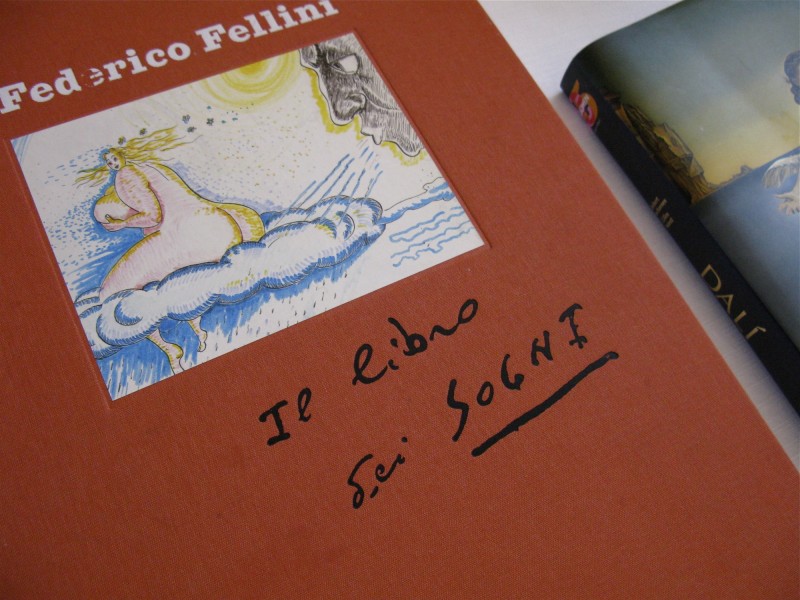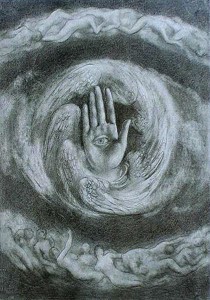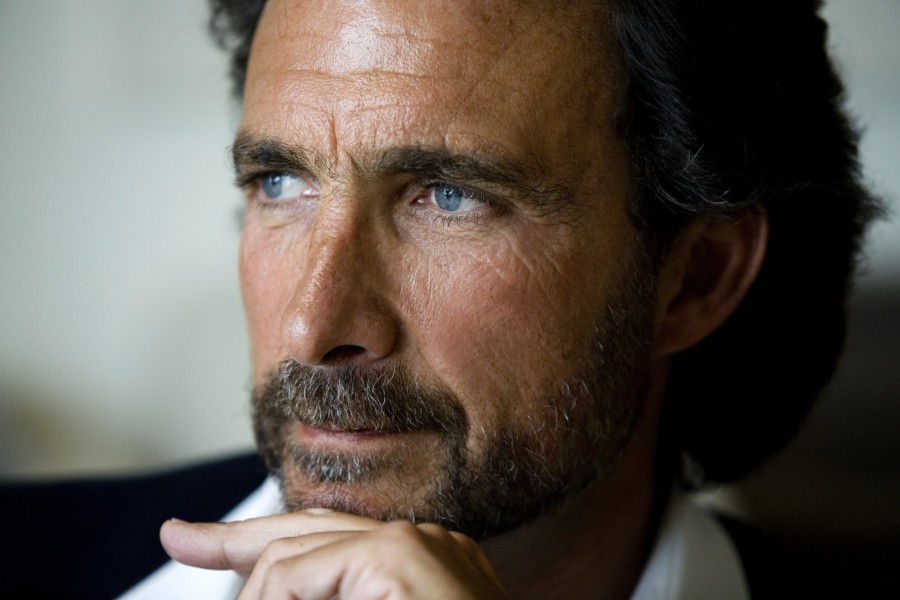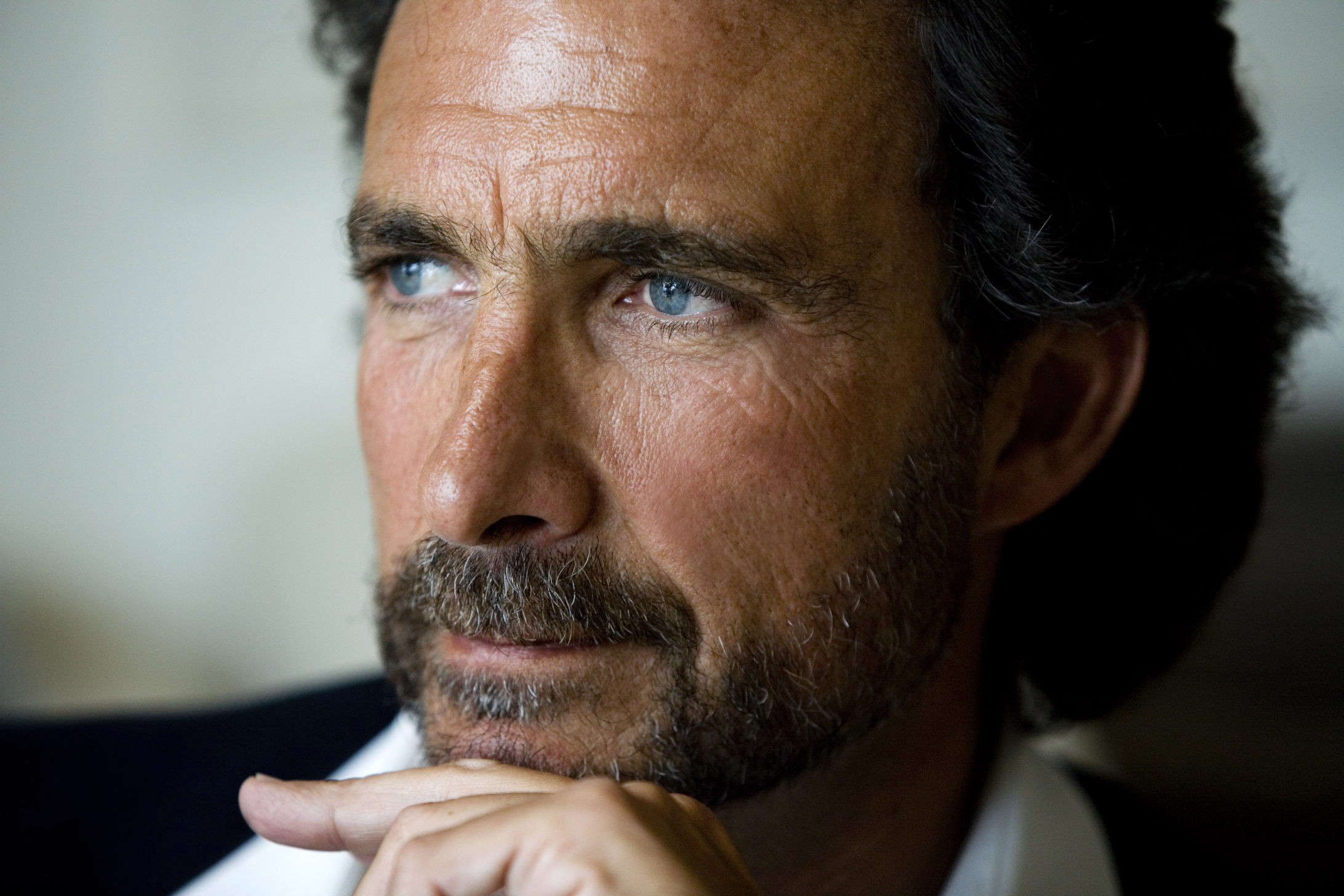“My little village is a place for the soul.” And in the preface of an elegant black and white Hotel brochure that looks more like an art book than anything else, he writes in a manner of a poet:
“The ancient Greeks and inhabitants of Anacapri used to climb to their village thousands of years ago up steep steps cut into the rock face overlooking the sea and rising up into the clouds. Later, this became a spectacular road that still exists to this day, and its peak amid the tiny dwellings and secret gardens of today’s town Anacapri (ana meaning above in Greek) become the Acropolis of the island.
It is in this same small town, with its narrow alleyways and dazzling white buildings standing in sharp contrast against the brilliant blue of the sea, preserving its typical Mediterranean architecture that sits the Capri Palace, standing over the ruins of a great Roman palace built by the Roman Emperor Augustus and further embellished by the Emperor Tiberius.
The columns, arches and vaults bear a fleeting resemblance to the original Imperial Palace and the pure white architecture of the Mediterranean islands.
“The sea,” he carries on, “is unquestionably the dominant element here. It is in the flavor of our dishes, and in the eyes and smiles of our people. The sea will continue to stir our soul as we relive the beauty of this magnificent place, where over the centuries time has elapsed slowly, and the days roll by at a leisurely pace.”
The day I met Tonino (diminutive for Antonio) Cacace, was a few weeks before my recent arrival at the hotel. He happened to hear, don’t ask me how, that I was visiting his Palace and asking questions. Like a Greek god coming down from Olympus, he had someone call me in to introduce himself so that luckily, I could pay him my respects gracefully with an absolute stunning interview.
Before I have a chance to shake his hand, I am immediately captured by the magnetism of this tall, dark haired man with blue eyes, far bluer than the sea he describes so poetically in his brochure.
I am struck almost breathless and in shock by the depth of such a gaze into mine. Interlaced with simple and polite gestures, he is almost too humble for an emperor. Casually dressed in bright white linen, he requests a San Pellegrino water for me and a grapefruit juice for him. The waiter disappears and here I am confronted with this charming Italian hotelier, my Belkin recorder and the Caprian sea breeze reminding me I am alive.
Through his eyes and gentle but firm tone of voice, I learn he’s a man whose passions for art and philosophy make his day-to-day living an inspiration for the close-to-his-heart Palace he inherited and the people in the village where he was born. Through ethical, social and cultural responsibility, his conscious mission is to preserve the community of Anacapri‘s historic and territorial roots, weaving them all together into a modern, global and better place to live. No doubt his immense, restless, almost spiritual devotion will allow him to reign supreme.
The Hotel has its origins in the inn “Mariantonia“, once located in the center of Anacapri, operated since the 19th century by the Cacace family. “It was my father, Mario, who built the hotel in the Sixties,” he explains to me with a serious look on his face. He adds, “He was a man with a vision. He understood far in advance the hospitality development around the Piazzetta, and to build a hotel in a mountain (at the foot of Mount Solaro with its magnificent views overlooking the Gulf of Naples and Ischia Island) seemed at the time the idea of a fool.”
Sipping his juice without pausing he carries on: “He also knew how to raise a future hospitality entrepreneur. He therefore sent me to a strict college in Rome to pursue humanistic studies, where I ended up getting a degree in law, which was not exactly what I had in mind for myself. In 1975, my father unfortunately passed away tragically at only 53 years of age. I was 23.”
For a man that age, handsome and charming the way he already was and whose only obvious interests at the time were beautiful women and a life of carefree enjoyments, he found himself suddenly trapped by destiny turning the ripe boy he was into a young, busy entrepreneur with plenty of company and family duties on his plate.
With the utmost dedication and following in the footsteps of his father, he dramatically transformed the previous four star hotel into a top luxurious five star property. Today it is a member of the prestigious The Leading Small Hotels of the World group. Two restaurants feature Caprese Cuisine. One is gastronomic, l’Olivo, which was recently awarded a Michelin star, and working on its second. The magnificent Beauty Farm, considered by Conde NastTraveler readers to be the best medical spa in the world, a luxury boat and limousine service and a private VIP heliport are additional luxury services enjoyed by guests.
He achieves this clear success by progressively reducing the hotel’s physical dimensions, thus redefining the concept of luxury and hospitality.
In the early Eighties – before anyone else in Europe did so – he introduced rooms with available private pools, a revolution at that time. He also reduced the previous 110 rooms to a total of 77 spacious suites. I must tell you my suite, reminiscent of the most beautiful Roman coastal villas, overlooks an internal garden filled with jasmine, lemon and flowering orange trees. It is called Artemide like the Greek goddess. Among other ‘goddess’, La Callas, Monroe, Adjani, Athena, and Acropolis have black and white pictures on their walls that make you feel like taking the pictures and the stars home with you.
The hotel interior has since been gutted and redone with a curious grace and elegance as the result of a collaboration between Tonino Cacace and his ex-girlfriend, the talented architect Fabrizia Frezza. With the remodeling, the old hotel rigidity typical of the stark architecture of the seventies acquired a feeling of a home hosting friends rather than clients.
With its stone floors, columns creating at times the optical illusion of the Athens Parthenon, arches and vaulted ceilings, every element is a reminder of a glorious past that seems to come to life in all its splendor.
The Travertine baths, the warm tones of the fabrics and the sumptuous white and gold Louis XVI-style décor at times reminding one of the light and the warmth of Mediterranean hospitality blend in each and every room with understated elegance and touches of minimalist rigueur.
“Excellence for me is the attention to detail,” Tonino Cacace adds with an introspective look. “It’s a consequence of an inner restlessness, uneasiness that constantly pushes your performance to its best, being the example to all those that together work for the same scope; in a company or in a hotel, it does not really matter.”
As a result of this holistic concept, prestigious ‘Made-in-Italy’ companies like Loro Piana, sixth generation suppliers of cashmere and exclusive fabrics for plus-ultra demanding customers are partners with Tonino Cacace, turning him into the top world consumer of the precious wool and striped grey linens for the hotel’s common rooms, small restaurant bergères, Poltona Frau‘s armchairs all masterly hand-crafted by the expertise of Loro Piana’s Neapolitan upholsterers. Trust me, this is something I am “literally writing home about!”
Carlo Moretti for Murano, the hand blown glass factory from Venice created original pieces especially for the restaurant, giving us the feel that art and design must be a harmonious part of our basic everyday life.
Antonio attends a phone call and I drink my San Pellegrino. Around me I notice the clientele, mostly European, some Lebanese. They are a chic crowd, mainly young, discerning and sophisticated couples of a self-made generation whose values were acquired by hard work. It’s a clientele that is far more contemporary and demanding. They differ consciously from their parents, who are still satisfied with the aristocracy of old-glamour cliche living, without a doubt a trend that today – as iconic as it was – is finally over and definitely depasse.
Silence, discretion and spirit preservation are on today’s menu, as opposed to the Sixties where everyone needed to be seen and Jamais- vu (never seen) at a local charming Capri Piazzetta during less globalized times.
Clients are dressed in Missoni, Paul Smith and Hermès; their sandals are local. Saint Barth lotions circulate around the pool; cowboy hats; the eye wear is from Etro, and there is lots of understated coral jewelry. In the evening jewelry is from De Grisogono of course, a long time hotel habitue.
Gwyneth Paltrow recently was the star at the Capri Palace for the latest Diego Della Valle ( long time friend of Cacace) Tod’s advertising campaign. Not to mention, and Tonino Cacace is discrete, in the space of just a few years, it became the favorite destination of famous personalities from the worlds of the arts, business, and entertainment. Among them are Julia Roberts, Harrison Ford, Madonna, Liz Hurley, Mariah Carey, Whitney Houston, John Grisham, Frederick Forsyth, and the Hariri family.
A special suite, the Megaron, had been reserved for your stay. The roof’s heavy crystal layer can be opened, allowing you to enjoy and gaze at the starry sky at night from your personal, private round pool. By your side standing in the cozy roof garden, the luxury of an olive tree to provides you with a feeling of earthly fertility. That olive tree was personally selected by Tonino Cacace himself especially for you at a mature age, and was installed using a helicopter. Knowing that tree would have only a 50% chance of survival, Tonino kept on talking to the tree so it could grow safe and healthy to harbor your wildest dreams and desires in case you spot a falling star in the night sky.
Nothing more to tell in this post about this Deus-ex-Machina whose personality and charisma make the Capri Palace Hotel & Spa, without a doubt, one of the most exclusive and luxurious places in the world except that…
On my bed side, a member of the hotel’s staff (“treated like clients ” by Cacace on his father’s advice) has left a small booklet with a collection of aphorisms by famous poets and writers illustrated by watercolors by Maestro Michel Constantini inviting their guests into a safe and good night’s sleep.
The one I pick before my own journey into sleep is from Khalil Gibran, one of my very favorite poets: “You can’t touch the dawn, if you haven’t covered the paths of the night.”
I am sure Tonino Cacace’s soul, as a man and an entrepreneur, checked that one out before falling into a dream of a gold Palace upon a hill, overlooking a dark blue sea.
